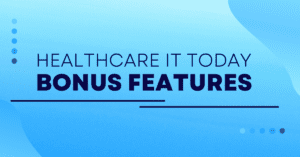Interoperability is game-changing not just in a clinical setting, but it holds tremendous potential for healthcare’s financial stakeholders as well. A seamless transfer of data in the revenue cycle process results in optimal reimbursement, reduced administrative costs, and fewer surprises for patients.
Healthcare IT Today sat down with Juli Forde Smith, Director of Strategic Partnerships at ZOLL Data Systems and Erica Gregory, Senior Vice President at Netsmart to discuss interoperability for revenue cycle management (RCM).
Prioritize Intake for Effective RCM
Patient intake is an important part of the revenue cycle process. The information gathered prior to care delivery has big impacts on the efficiency of claims moving through to payment.
“Roughly 60 percent of our claims come from our referral-admit-intake process,” explained Gregory. “If that process is not streamlined and if we do not have data integrity, it is extremely difficult to provide a good intake experience and have a good first-pass pay rate.”
A streamlined patient intake process is also an opportunity to create transparency with patients. For example, prior authorization and patient eligibility are now key steps to ensuring price transparency and fewer financial surprises for patients.
“So much of the experience for patients is a financial one,” added Smith. “The earlier and more seamlessly we can engage, the better.”
RCM interoperability Impacts Patient Experience
Streamlining data flow from referral to admission facilitates accurate, timely information, which is crucial for optimal reimbursement rates and reduced administrative costs. Ultimately, streamlined data and processes improve the patient experience.
“Real-time interoperability of financial data has reduced our administrative burden by as much as thirty percent,” shared Smith. “It has also improved patient collections by fifty percent and improved patient satisfaction across the board.”
From Gregory’s perspective, one of the most significant benefits of RCM interoperability happens when a patient is transferred to another healthcare organization: “When a patient is transferred to a long-term care facility, we must transmit their care treatment plan along with the eligibility or coverage that patient has. That way, the accepting organization can quickly assess whether they can accept the patient.”
In the situation above, without seamless clinical and RCM interoperability, the transfer may be delayed or worse, the patient may be bounced around between organizations.
Leveraging APIs makes RCM interoperability easier
“APIs are the best way to achieve interoperability,” stated Gregory. “We can get real-time information in a standard format between partnering organizations. We server over 2,900 clients that are on 19 different EHRs, so being able to have a standardized file format that can interact with those different EHRs in real-time is critical.”
Both Netsmart and ZOLL are using APIs from their mutual partner, Inovalon, to share financial data quickly and seamlessly.
“APIs make things seamless,” said Smith. “We are connected to thousands of partners and hundreds of data sources. We can only provide a seamless experience if I have a partner on the other end who is equally committed. That’s why we love partners like Inovalon. They are committed to the same kind of patient experience.”
Watch the interview with Erica Gregory and Juli Forde Smith to learn:
- How a health IT company or healthcare provider can take a meaningful step towards RCM interoperability
- Why knowing the cost of care up-front helps with care decision-making
Learn more about ZOLL Data at https://www.zolldata.com/
Learn more about Netsmart at https://www.ntst.com/
Learn more about Inovalon at https://www.inovalon.com/
Listen and subscribe to the Healthcare IT Today Interviews Podcast to hear all the latest insights from experts in healthcare IT.
And for an exclusive look at our top stories, subscribe to our newsletter and YouTube.
Tell us what you think. Contact us here or on Twitter at @hcitoday. And if you’re interested in advertising with us, check out our various advertising packages and request our Media Kit.
Inovalon is a sponsor of Healthcare Scene.
Get Fresh Healthcare & IT Stories Delivered Daily
Join thousands of your healthcare & HealthIT peers who subscribe to our daily newsletter.




